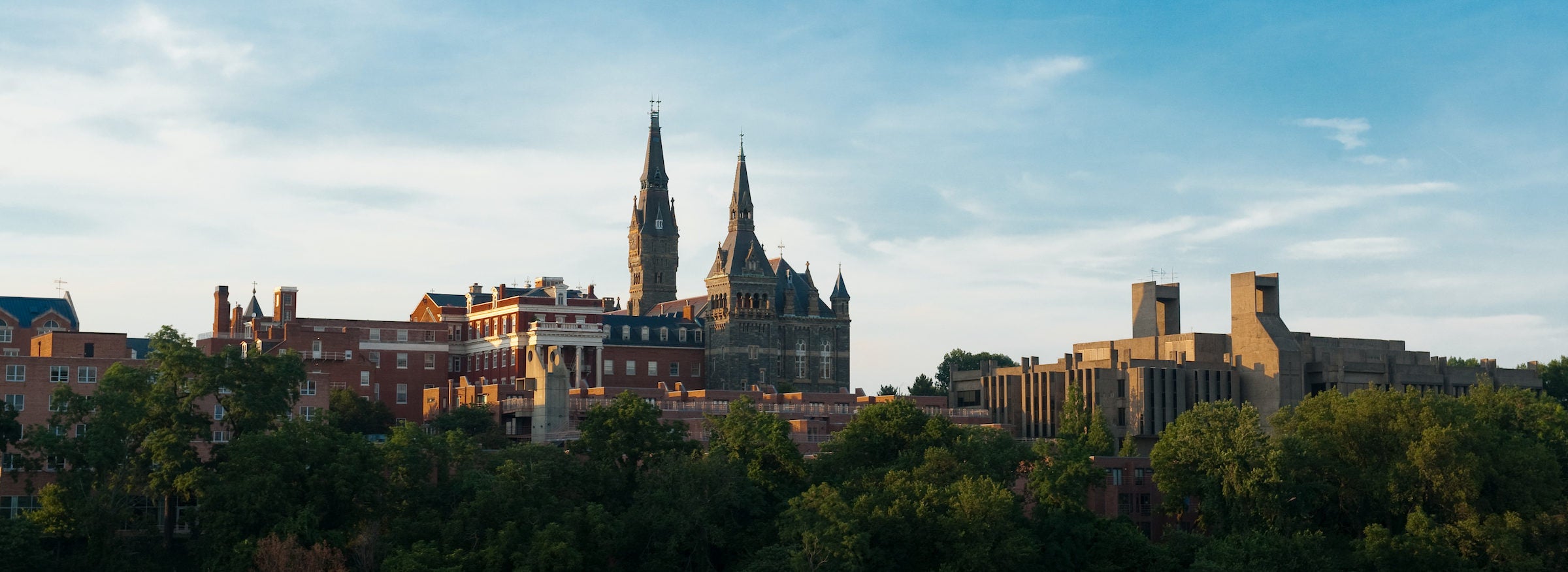
Georgetown University
Georgetown University is an institution of a national and an international cast. Founded in 1789 to educate citizens for the new republic, it is located in close proximity to the nation’s seat of government and to the numerous international organizations that have roots in Washington. Not surprisingly, it attracts faculty and students from all 50 states and from countries around the world.
Georgetown is committed to a view of reality which reflects Catholic and Jesuit influences. It neither wishes nor expects all members of the University community to be Catholic, but it does assume that all of them share a basic, widely accepted view of humankind. It sees all persons as essentially equal, as endowed with a human dignity always to be respected. It sees its own function as being the service of humankind through teaching, research, and other activities that properly flow from these. In particular it wishes these convictions as to the dignity of the individual to be manifested in all its campus life; it believes that, as far as possible, the relationships among faculty, students, and administrators should be personal ones. It seeks to open its arms, in the fullest sense of ecumenism, to those of all beliefs and all races.
As an institution that is Catholic, Georgetown believes that all persons are children of God, called to a life of oneness with God now and in eternity. It imposes no religious creed on any faculty member or any student, but it expects them to respect the religious convictions of each person.
The University is composed of the College of Arts and Sciences, the Edmund A. Walsh School of Foreign Service, the McDonough School of Business, the School of Nursing, the School of Health, the School of Continuing Studies, the Graduate School of Arts and Sciences, the McCourt School of Public Policy, the School of Medicine, and the Georgetown University Law Center.
Georgetown University is accredited by the Middle States Commission on Higher Education, which is an institutional accrediting agency recognized by the United States Secretary of Education and the Council for Higher Education Accreditation. The University successfully completed its most recent reaccreditation review in Spring of 2022. This process takes place every 10 years, and applies to the entire university. View Georgetown University’s accreditation status and read about Georgetown’s self-study.
The University may update its policies, procedures, admissions requirements, curriculum, course offerings and requirements, course delivery modes or methods (including whether virtual or in person), arrangement of courses, academic and semester calendar, schedule, and duration graduation or degree requirements, conditions for eligibility for financial aid, tuition rates and fees, and resources and programming offered to students at any time for any reason. Any updates made to the Undergraduate Bulletin will be communicated to students. It is the responsibility of each student to keep well-informed with respect to the policies and requirements in the Undergraduate Bulletin and all other policies of the University, school, and program in which they are enrolled. The Undergraduate Bulletin applies to current students and is not a contract. If you have any question regarding the publishing of this Bulletin please contact the Office of the University Registrar at univregistrar@georgetown.edu. For questions regarding college-specific policies, please visit the dean’s office of the respective college.
